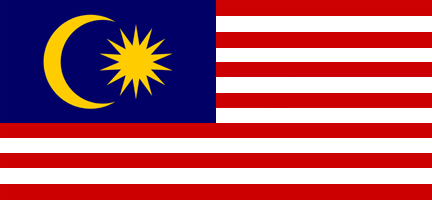Investors in the U.S. are not even three weeks removed from Election Day, but it is worth noting other investable countries will be holding elections in the coming months. Malaysia, which is expected to hold general elections in six months, is a prime of country that is easily accessible to U.S. investors.
The Asian nation is also a prime example of one that can easily be affected by domestic politics. To that end, the iShares MSCI Malaysia Index Fund (NAR:EWM) is one country-specific emerging markets ETF investors will want to keep an eye on in the coming months.
 Year-to-date, the iShares MSCI Malaysia Index Fund is up about 10 percent. That performance puts the ETF well behind comparable rivals such as the iShares MSCI Philippines Investable Market Index Fund (NAR:EPHE) and the iShares MSCI Thailand Investable Market Index Fund (NAR:THD) . EWM has also lagged the SPDR S&P 500 (NAR:SPY) by a decent margin.
Year-to-date, the iShares MSCI Malaysia Index Fund is up about 10 percent. That performance puts the ETF well behind comparable rivals such as the iShares MSCI Philippines Investable Market Index Fund (NAR:EPHE) and the iShares MSCI Thailand Investable Market Index Fund (NAR:THD) . EWM has also lagged the SPDR S&P 500 (NAR:SPY) by a decent margin.
In its favor, EWM has outperformed those ETFs tracking Indonesia, Southeast Asia's largest economy. Importantly, one reason EWM has likely lagged SPY is beta. As in EWM qualifies as a low-beta ETF. The ETF's beta against the S&P 500 is just 0.62, according to iShares data.
There is another reason to give EWM strong near-term consideration. Prime Minister Najib Razak, the incumbent, and his Barisan Nasional coalition are facing what is expected to be the tightest election in Malaysian history. Following the country's 2008 elections, Barisan Nasional lost its two-thirds majority in parliament, according to Reuters.
Translation: Malaysia has adopted a familiar tactic seen in U.S. That being the opening of government coffers by the party in power to stimulate economic growth in election years. Emerging markets ranging from China to Brazil have announced major infrastructure largesse this year, Malaysia's own infrastructure program has gone largely ignored by foreign investors.
The country's $444 billion Economic Transformation Program is aimed bolstering domestic demand and lifting personal incomes. Arguably, the program is also designed to keep Razak in power and increase support for the Barisan Nasional coalition.
Investors can reap the rewards of Malaysia's pre-election generosity because the ETF is significantly exposed to the nation's domestic economy. As is the case with many emerging markets ETFs, financial services names loom large in EWM, accounting for over 31 percent of the ETF's weight. However, industrials and consumer staples combine for nearly 26 percent of EWM's weight while discretionary names receive an allocation of nearly 10 percent.
To the government's credit, the spending initiatives appear to be having a positive impact. Malaysia posted second-quarter GDP growth of 5.4 percent. Investments made by the public and private sectors surged 26.1 percent, Reuters reported.
There are potential risks to the Malaysian economy and EWM itself. While the spending plan has been lauded by the international community, debt as a percentage of GDP in Malaysia has risen by more than a third since 2008. The country's debt-to-GDP of 53.4 percent at the end of the first quarter was more than 200 basis points higher than that of the Philippines.
That rate is dangerously high to the government's desired limit of 55 percent and it does put some burden on investors to ignore rising debt levels while embracing the theme of increased domestic consumption.
To this point, the spending gambit appears to have worked. Investors that can grab EWM in the $14.50-$14.60 area can bank on some decent capital appreciation, perhaps up to five percent or more, in the months ahead. They will also be compensated to wait as EWM features a surprisingly decent 30-day SEC yield of nearly three percent.
No comments:
Post a Comment